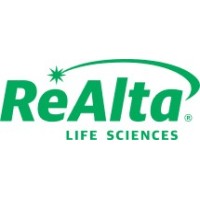FAQ: EMA Orphan Drug Designation for ReAlta's RLS-0071 (Pegtarazimod) in Graft-Versus-Host Disease

Summary
ReAlta Life Sciences has received EMA Orphan Drug Designation for RLS-0071 (pegtarazimod) for treating Graft-Versus-Host Disease, supported by Phase 2 trial data. This designation provides regulatory benefits and validates the company's dual-targeting approach to address the urgent unmet need in steroid-refractory acute GvHD.
What is the main announcement from ReAlta Life Sciences?
ReAlta Life Sciences has received Orphan Drug Designation from the European Medicines Agency (EMA) for RLS-0071 (pegtarazimod) for the treatment of Graft-versus-Host Disease (GvHD).
What is RLS-0071 (pegtarazimod) and how does it work?
RLS-0071 (pegtarazimod) is a 15-amino-acid peptide that uniquely targets both humoral and cellular inflammation by selectively inhibiting complement activation at C1, myeloperoxidase (MPO) activity, neutrophil elastase, and NETosis while preserving beneficial immune function.
Why is this EMA designation significant for GvHD treatment?
This designation is significant because it addresses the urgent unmet need in acute GvHD, particularly steroid-refractory cases, and validates ReAlta’s novel dual-targeting approach to modulate both neutrophil and complement-mediated inflammation.
What clinical trial data supports this designation?
The designation was supported by preliminary data from ReAlta’s ongoing Phase 2 trial, including data from the initial cohort of steroid-refractory Acute GvHD patients.
Where is the Phase 2 clinical trial being conducted?
The Phase 2 trial (NCT06343792) is being conducted at clinical sites in the United States, Germany, and Spain, enrolling hospitalized patients with moderate to very severe steroid-refractory acute graft-versus-host disease.
What benefits does EMA Orphan Drug Designation provide?
EMA Orphan Drug Designation provides benefits including reduced regulatory fees, clinical protocol assistance, and up to 10 years of market exclusivity in the European Union if the drug is approved.
What other regulatory designations has pegtarazimod received?
In August 2024, the U.S. FDA granted Orphan Drug Designation and Fast Track Designation to pegtarazimod for the treatment of acute GvHD.
When will additional trial data be available?
ReAlta expects to report data from additional cohorts of patients enrolled in the Phase 2 trial in 2026.
What specific patient population does pegtarazimod target?
Pegtarazimod targets patients with lower gastrointestinal (GI) acute GvHD that is steroid-refractory, which is the most difficult to treat and has the highest rate of mortality.
How does pegtarazimod differ from current GvHD treatments?
Unlike broadly immunosuppressive approaches, pegtarazimod addresses specific pathways driving tissue damage while preserving beneficial immune function, making it a more targeted intervention for GvHD.

This story is based on an article that was registered on the blockchain. The original source content used for this article is located at citybiz
Article Control ID: 171070